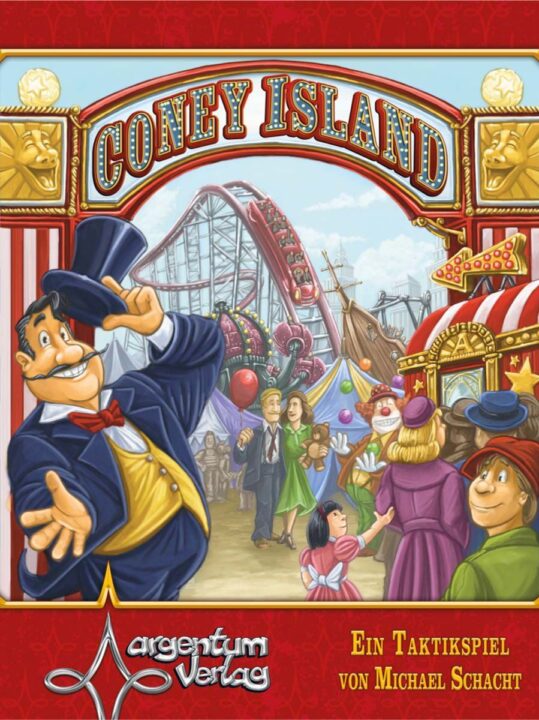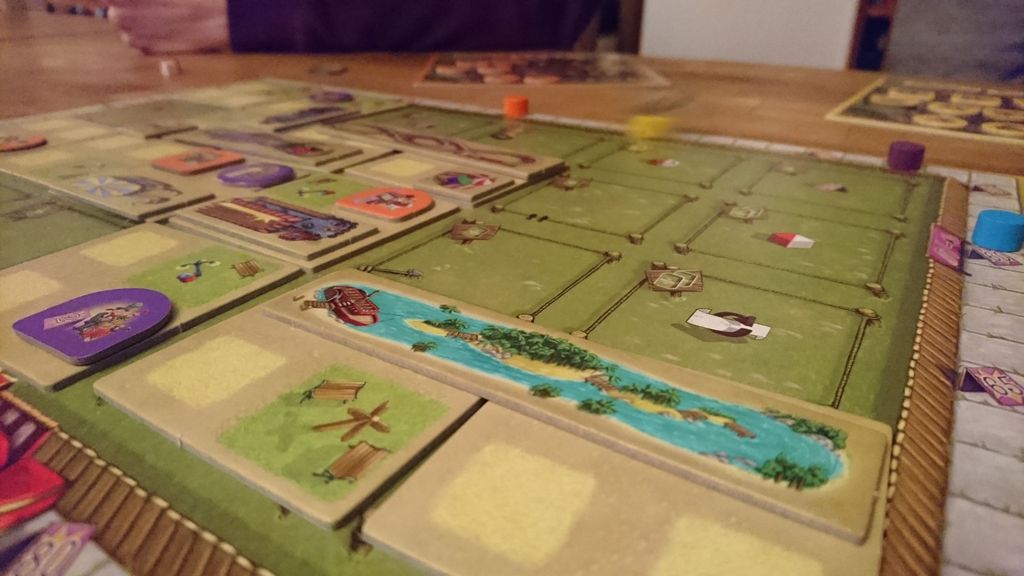Welcome, thrill seekers and meeple wranglers! Grab a snack (preferably something sticky and deep-fried) because I’m about to share my review of a game that dropped me straight into the middle of a bustling carnival—minus the suspicious hot dog carts. Is it bright lights and fun for everyone, or more like dropping your popcorn on the bumper cars? Hang on to your tokens; let’s get this review rolling!
How It Plays
Setting up
First, put the game board in the middle of the table. Each player grabs their color pieces and a player board. Shuffle the tiles, deal everyone some, and set out the rest in a draw pile. Place the attraction tokens nearby. Lay out the visitor tokens and get those coins ready for a day at the fair.
Gameplay
On your turn, you can place tiles, build attractions, or send visitors into the park. You want to place your tiles smartly, making your section of Coney Island look the most amazing. You can even bump other players for fun (and profit). You’ll need to manage your coins to keep up. If you play your tiles right, you trigger combos that will make your board the talk of the carnival! There’s enough player interaction to keep things spicy, but it doesn’t get mean.
Winning the game
The game ends after a set number of rounds. Players add points for their attractions, completed areas, leftover cash, and visitor bonuses. The player with the most points wins and is crowned the supreme carnival tycoon, at least until the next game night. If you have the most points, you get bragging rights—and maybe someone will buy you a corndog in celebration.
Want to know more? Read our extensive strategy guide for Coney Island.
Themes and Artwork: A Carnival Feast for the Eyes
When I first slapped Coney Island on the table, my friends and I felt like we were actually setting up a carnival booth at the edge of Brooklyn. If games were judged by their covers, this one would’ve won my heart before even unboxing! The artwork is packed with vibrant colors, retro carnival posters, and quirky little details that made us all pause and take a closer look – except Dave, who was too busy looking for the snacks.
A lot of games try to slap a theme on and call it a day, but Coney Island really put in the effort. Each card and tile oozes with that old-timey amusement park vibe. I actually caught myself humming circus tunes while setting things up. The strong theme made it easy for everyone to get into character: suddenly I was a slightly shady carnie trying to outdo my friends at building the most exciting attractions. I hope no one noticed my fake ringmaster voice. The tokens – tiny tents, wheels, and food stalls – are chunky and satisfying to move around. If you’re after a dose of nostalgia, or just want your eyeballs to have a good time, this box delivers.
But even the handsomest game can fall flat if all it offers is window dressing. Next up, we’ll stick our heads into the mechanical lion’s mouth and see if the gameplay is as thrilling as the artwork!
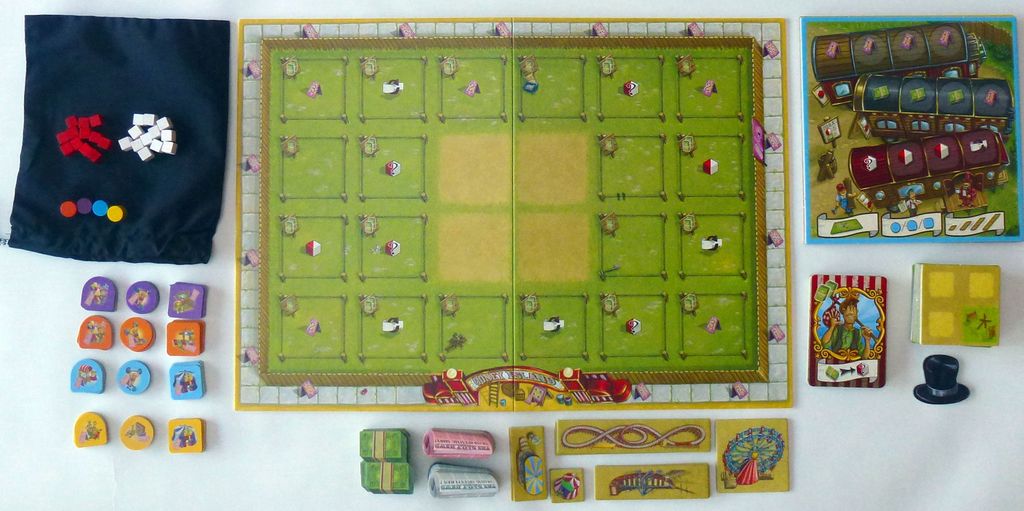
Let’s Talk Nuts and Bolts: Game Mechanics and Player Interaction in Coney Island
So, you want to know how Coney Island actually plays? Well, pull up a rickety fairground bench! When I broke this game out with my friends, we found ourselves snatching up boardwalk tiles, building gaudy attractions, and hiring what can only be described as the quirkiest helpers outside of a traveling circus. The main mechanic here is tile-placement, and boy, does it keep things hopping. Every turn, you get choices: do you go for a quick buck by finishing attractions, or do you set up a sneaky combo to rake in points later? I once tried to build a rollercoaster empire, but Sarah swooped in and stole my big-ticket tile. Still salty about that.
Player interaction in Coney Island is a delicious mix of “help, I need that tile” and “oh no, Bob just blocked my spot.” Every move feels like a little nudge (or sometimes a full-body shove) against your friends. The tension ramps up fast, especially near the end when everyone’s scrambling to finish attractions. If you’re the type who enjoys a good bit of passive-aggressive competition, Coney Island delivers. Just make sure you’re okay with friendships being tested harder than the strength of a carnival dunk tank.
Luck does pop its head up now and then (pesky event cards, I’m looking at you), but smart planning usually wins the day. The game avoids big swings or “oops, you lost because you rolled a 1” moments, so skill does count for something.
But does that skill keep things fresh after three, four, or ten plays? Grab your cotton candy, because next up is Replay value and variety!
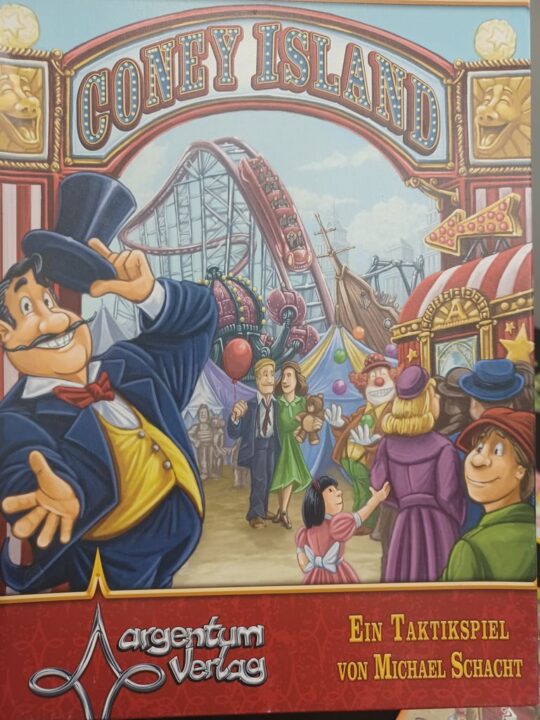
Replay Value and Variety in Coney Island: The Never-Ending Fairground?
I have to admit, my game shelf has some titles that basically turn into expensive coasters after three plays. But Coney Island is not one of those! Every time my group gathers, this game feels like someone reset the carnival and tossed out all the old popcorn. Each session offers a fresh challenge because of the way new tiles get laid out and how players pick their buildings and workers. I never felt like I could just stick to one plan and win. Last week I tried the ‘sneaky stall owner’ approach—total disaster due to a surprise move from my friend Jerry. (He’s now banned from my cotton candy stand.)
The biggest plus for replay value is the variety of strategies. You can focus on building up your own area, mess with other players, or try a bit of both. Plus, there are different ways to score points, which means you’re never locked into just one path for glory. I’ve even seen the same group play a second round immediately, with everyone totally switching up tactics to see if something new works better. In my book, that’s the golden ticket!
One thing I should mention though—there aren’t a ton of game-changing cards or events, so the variety comes more from what players do, not the game itself throwing curveballs. This keeps a level playing field but could leave you wanting a little more chaos if you love things wild and unpredictable.
Next, I’m tossing my top hat into the ring to tackle a topic every gamer wants to know: how fair is Coney Island when it comes to balance versus luck? Hold onto your funnel cake!
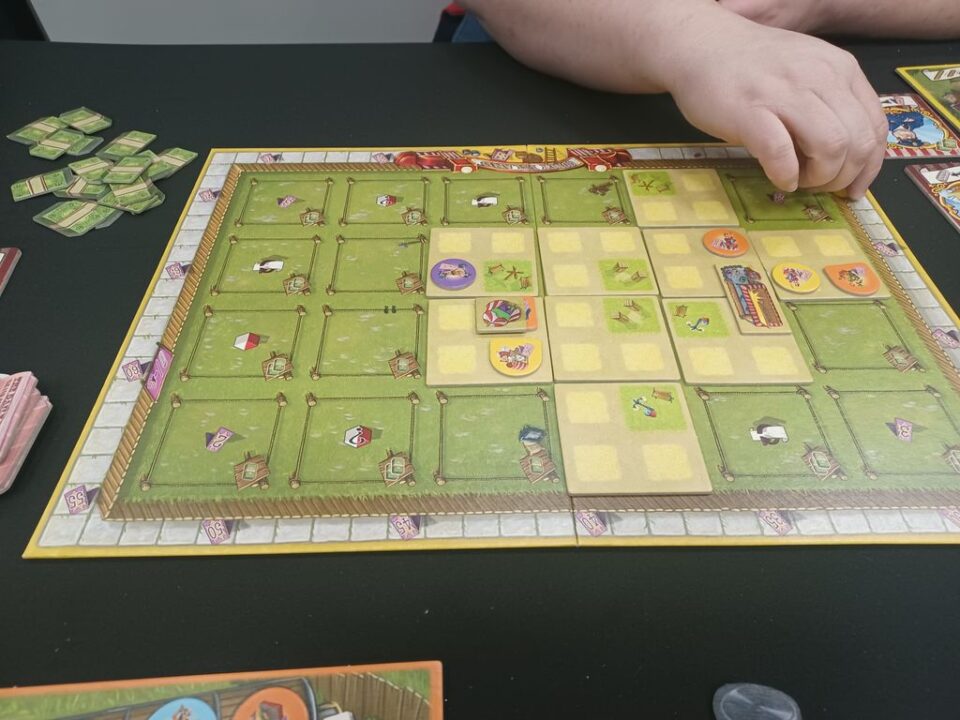
Balance vs. Luck: Does Coney Island Let Skill Shine?
Alright, folks, let’s talk fairness. I once lost three hours of my life to a board game where my whole fate depended on a single die roll. Never again! So, when my friends set up Coney Island, I eyed it with suspicion. Are my hopes and dreams getting thrown to the luck-monster, or is this one of those games where skill really matters?
During my playthroughs — yes, plural, because my competitive cousin demanded revenge after losing — I noticed something. Coney Island actually rewards good planning. You might get the occasional lucky break with tile draws, but you can’t just bumble your way to victory. You have to watch what other players are doing, think ahead, and sometimes pull off moves that make everyone at the table groan (the good kind — not the someone’s-flipping-the-table kind).
Luck still peeks in here and there. Sometimes you just need a certain tile to finish your master plan, and the game laughs at you. But it never feels mean-spirited. And you can spot when someone wins because they played smart, not just because their lucky socks pulled through.
For me, that’s the sweet spot. If you make a wrong move, it’s probably on you, not on the whims of a bad shuffle. Coney Island keeps everyone thinking but doesn’t punish you with random nonsense.
So, do I recommend it? Absolutely! If you want a game that’s about brains over blind luck, roll up your sleeves and jump into Coney Island. Just make sure your cousin doesn’t stack the tiles.
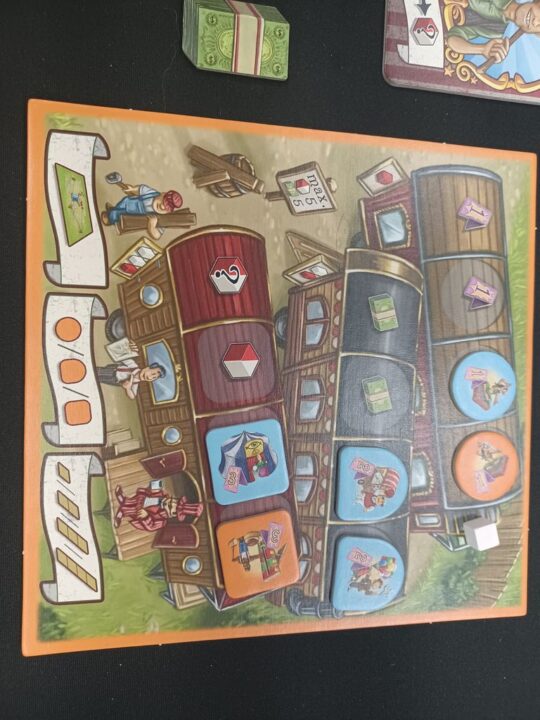
Conclusion
Alright, folks, that wraps up my review of Coney Island! This game really stands out with its carnival vibe, clever mechanics, and fair play. If you’re tired of games where dice decide your fate and want some good old tactical action, this one’s a winner. Artwork’s great, theme pops, and replay value’s high. My friends and I laughed, planned, and yes—argued just a little, but it never felt unfair. It’s not perfect, but what in life is? If you want a game that rewards thinking and lets the best carny win, Coney Island should be on your table. Now if only I could resist the urge to put a funnel cake stand in every corner…

